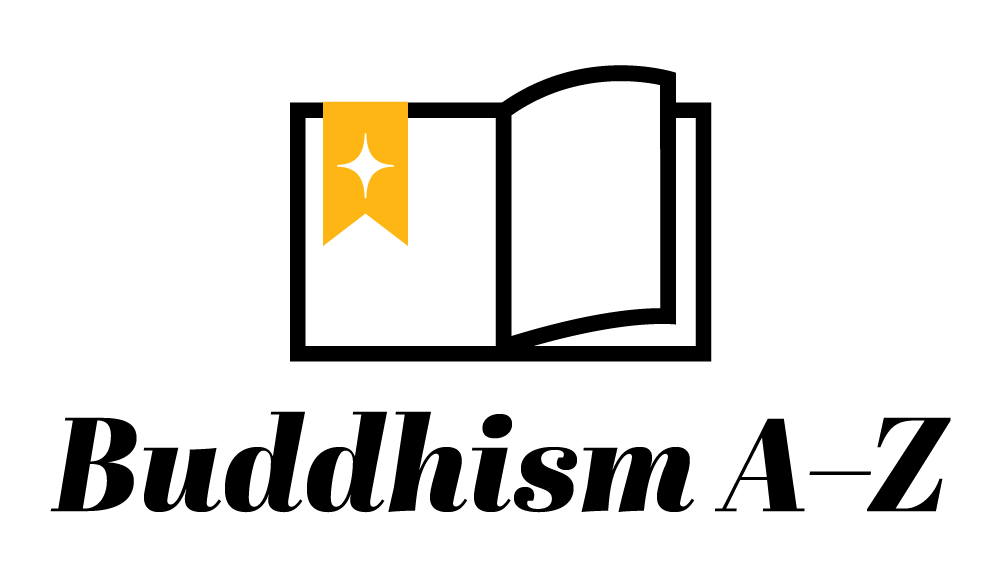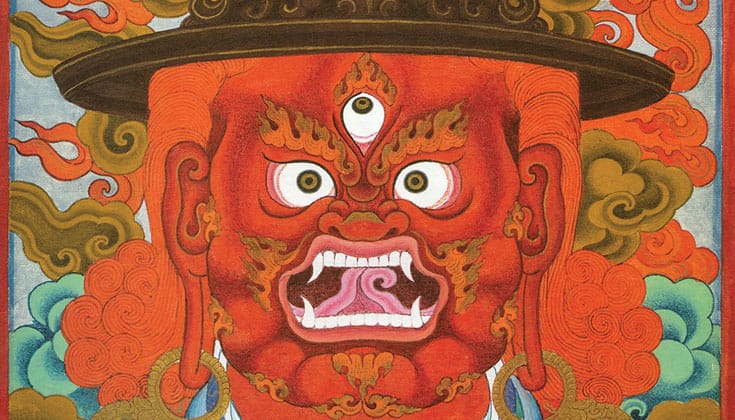Anger, or aggression, is one of the three poisons that, according to Buddhism, cause suffering. The three poisons are: anger, passion or attachment, and ignorance. Under their control, we act in ways that cause great suffering for ourselves and others.
Antidotes to Anger and Aggression
Mindfulness
Mindfulness practice can help us work with our anger to reduce the harm it causes. Being aware of the arising of anger within us without immediately reacting to it allows us to choose a more skillful response. By noticing our anger without trying to push it away, we can more effectively work with it. “Mindfulness recognizes anger, is aware of its presence, accepts and allows it to be there,” wrote the late Thich Nhat Hanh. “Once we have recognized our anger, we embrace it… If you know how to embrace your anger, something will change.”
Loving-kindness
Through developing loving-kindness (metta), one can replace feelings of anger and hatred with thoughts of love and goodwill, even toward those who might be considered “enemies.”
Insight
Ultimately, insight is what frees us from anger permanently. Insight, in this context, is a deep understanding of the nature of reality, specifically the truths of impermanence, suffering, and the absence of a self, known as the three marks of existence. When one deeply understands these concepts, anger loses its footing.
The Wisdom of Anger
Buddhist teachings provide us with ways to work with the energy of anger so it doesn’t turn into the destructive energy of aggression. In the Vajrayana or tantric teachings, the true nature of anger’s energy is experienced as powerful wisdom. As Lion’s Roar editor-in-chief Melvin McLeod writes, “In its pure, awakened form, when it is not driven by ego, anger brings good to the world. It can be, for example, the energy that inspires great movements for freedom and social justice, or the force that helps us simply say ‘No!’ to actions that cause suffering.”
Related Reading
Thich Nhat Hanh’s Mindfulness Practice to Transform Anger into Love
This mindfulness practice from Thich Nhat Hanh will help you face your anger and transform it into the energies of love and understanding.
Loosening the Knots of Anger
Thich Nhat Hanh teaches us how to relax the bonds of anger, attachment and delusion through mindfulness and kindness toward ourselves.
The Answer to Anger & Aggression is Patience
We can suppress anger and aggression or act it out, either way making things worse for ourselves and others. Or we can practice patience.
How Do I Work with My Fear of Other People’s Anger?
You can’t stop people from being angry at you, advises Insight Meditation teacher Gina Sharpe, but you can change how it makes you feel.
The Wisdom of Anger
If you know how to use it, says Melvin McLeod, the energy of anger becomes fierce and compassionate wisdom. Even the buddhas get angry about injustice.
How to Transform Anger in 4 Steps
Using the traditional metaphor of the poison tree, Judy Lief teaches us four Buddhist techniques to work with our anger.
How to Cool the Flames of Anger with “RAIN”
The best way to transform anger and other strong emotions is to befriend them. As with any relationship, it takes time to become intimate with the inner workings of our minds. To do it we need courage and strength. And we need the help of an effective technique. Peeling away the layers of anger moves…
You Can’t Get Rid of Your Anger — And That’s OK
Denying anger or giving in to it only makes things worse. The middle way, says Josh Korda, is to live with your difficult emotions skillfully.
Buddhism A–Z
Explore essential Buddhist terms, concepts, and traditions.









